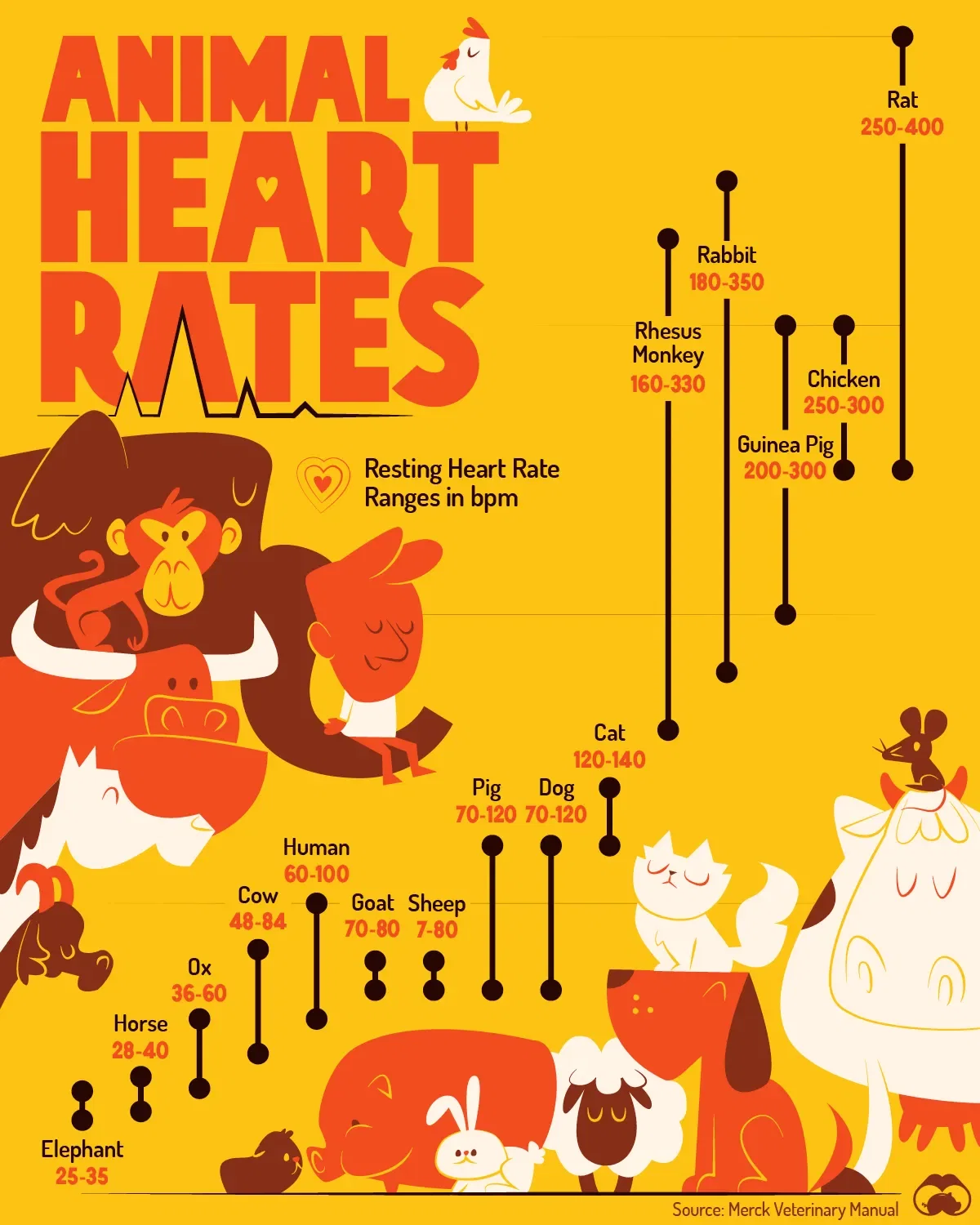Where Data Tells the Story
© Voronoi 2026. All rights reserved.

What We’re Showing
The resting heart rate range of 15 animals in beats-per-minute (bpm). Data is from the Merck Veterinary Manual.
Smaller Animals, Faster Heartbeats
Typically, smaller animals like rats, guinea pigs, and rabbits have higher resting heart rates compared to larger ones.
One reason for this is that smaller animals have higher metabolic rates per unit of body mass than larger animals.
The metabolic rate is the rate at which a living thing consumes energy to maintain basic bodily functions while at rest.
As a result, their hearts need to pump blood more frequently to deliver oxygen and nutrients to cells, leading to higher resting heart rates.
Bigger Animals, Bigger Hearts
Larger animals' hearts have a greater stroke volume (the amount of blood pumped from the heart to the rest of the body) than smaller animals.
This enables them to have a lower resting heart rate as each heartbeat pumps more blood to the rest of their body.